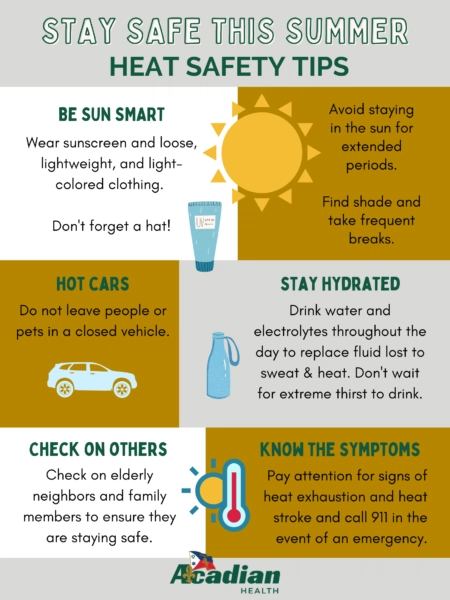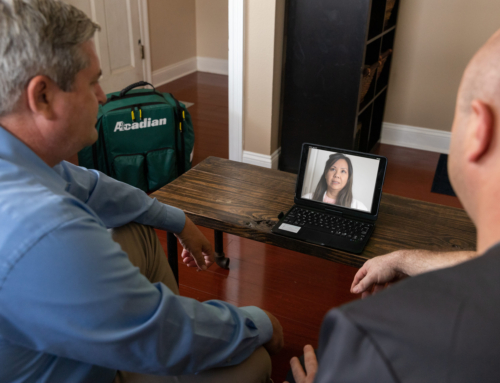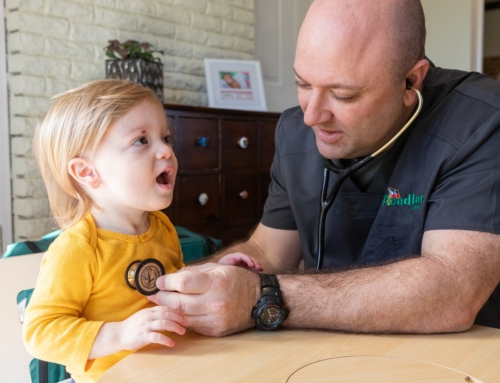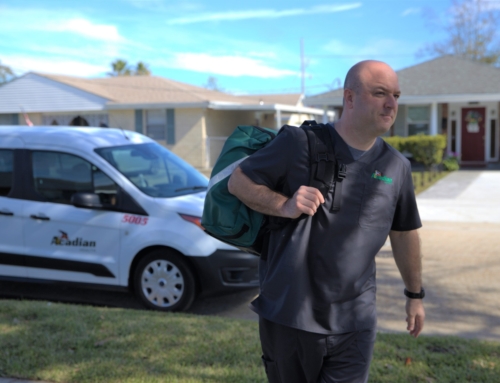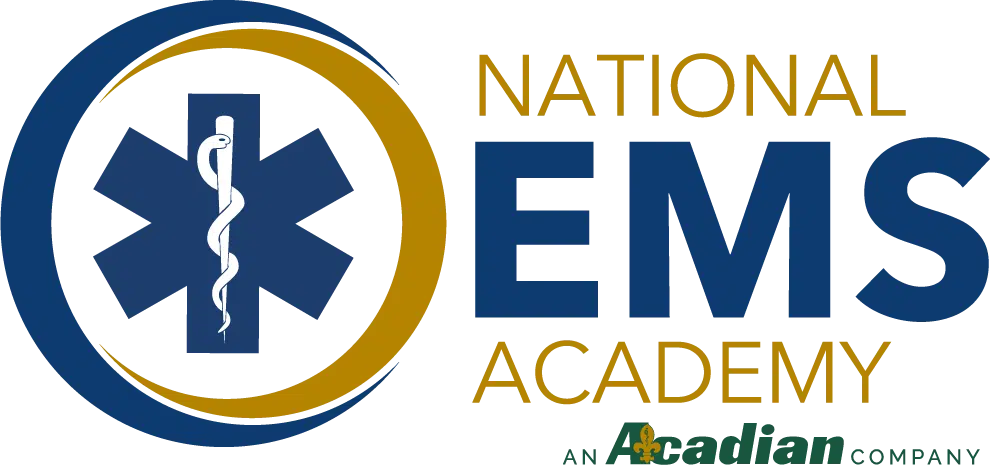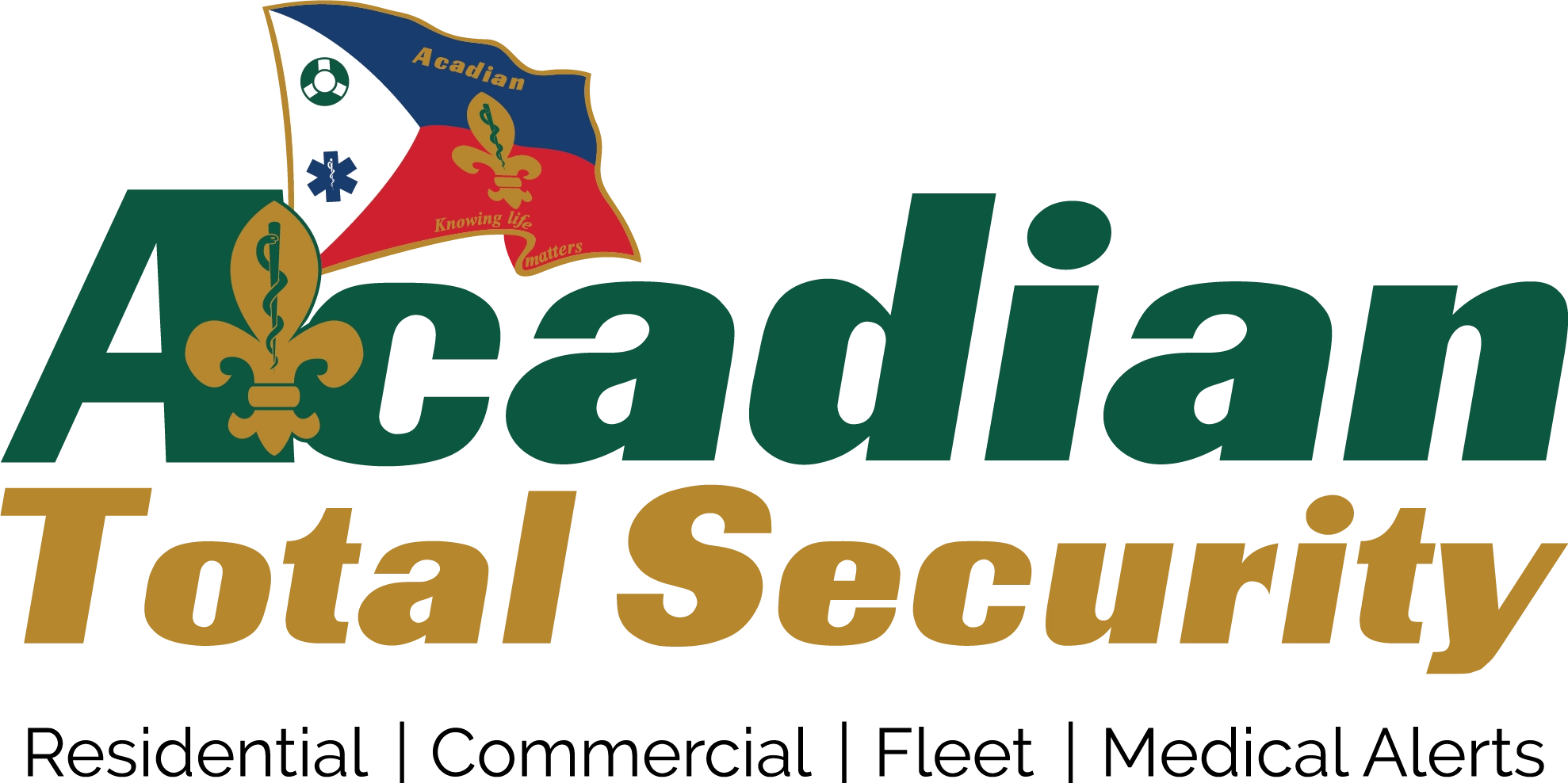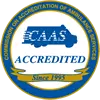Summertime heat and sun can be brutal, and they present numerous health dangers. We want everyone to stay safe during periods of extreme heat. Follow these prevention tips to protect yourself from heat-related stress or illness:
- Wear loose, lightweight, and light-colored clothing.
- Wear a hat wide enough to protect your face.
- Apply sunscreen of SPF 15 or higher 30 minutes prior to going out.
- Continue to reapply it according to direction.
- Start hydrating before you go outside and stay hydrated throughout the day.
- Drink cool, nonalcoholic beverages.
- Drinking sports drinks help replace valuable salt and minerals lost by sweating.
- Ensure that others with you stay hydrated as well.
- Take frequent rest breaks.
- Take cool showers or baths.
- Be aware of the symptoms of heat exhaustion and heat stroke. See them below.
Outdoors
- Never leave people or pets in a closed vehicle.
- Find shade.
- Try to avoid high-energy activities or work, especially during midday heat. Try to complete outdoors activities in the morning or evening, out of direct sun.
Indoors
- Use your oven less to help reduce the temperature in your home.
- If possible, seek an air-conditioned environment
- If you don’t have air conditioning, consider visiting an air-conditioned shopping mall or public library to cool off.
- If possible, remain indoors in the heat of the day.
Pets
- If pets are outside, make sure they have plenty of cool water and access to comfortable shade.
- Keep food and water in the shade.
- Protect your pets’ feet from asphalt and dark pavement, which gets very hot.
Others
- Check on family members, seniors and neighbors.
Heat Related Illness
Dehydration
Dehydration means your body does not have as much water and fluids as it should. Dehydration can be caused by losing too much fluid, not drinking enough water or fluids, or both.
The most obvious symptom is thirst; however, you may also experience:
- Headache Sweating may stop
- Muscle cramps
- Nausea and vomiting
- Heart palpitations
- Light-headedness (especially when standing)
Heat Exhaustion
Heat exhaustion is a milder form of heat-related illness that can develop after several days of exposure to high temperatures and inadequate or unbalanced replacement of fluids. Signs and symptoms of heat exhaustion include:
- Heavy sweating
- Paleness
- Muscle Cramps
- Tiredness
- Weakness
- Dizziness
- Headache
- Nausea or vomiting
- Fainting
- Skin: May be cool and moist
- Pulse rate: Fast & weak
- Breathing: Fast & shallow
Heat Stroke
Heat stroke is the most serious heat-related illness. It occurs when the body becomes unable to control its temperature: the body’s temperature rises rapidly, the body loses its ability to sweat, and it is unable to cool down. Body temperatures rise to 106°F or higher within 10-15 minutes. Heat stroke can cause death or permanent disability if emergency treatment is not provided. Signs and symptoms of heat stroke:
- Extremely high body temperature (above 103°F)
- Red, hot, and dry skin (no sweating)
- Rapid, strong pulse
- Throbbing headache
- Dizziness
- Nausea
What You Can Do to Help Protect Elderly Relatives and Neighbors
If you have elderly relatives or neighbors, you can help them protect themselves from heat-related stress:
- Visit older adults at risk at least twice a day and watch them for signs of heat exhaustion or heat stroke
- Make sure older adults have access to an electric fan whenever possible
Elderly people (people aged 65 years and older) are more prone to heat stress than younger people for several reasons:
- Elderly people do not adjust as well as young people to sudden changes in temperature
- They are more likely to have a chronic medical condition that upsets normal body responses to heat
- They are more likely to take prescription medicines that impair the body’s ability to regulate its temperature or that inhibit perspiration

